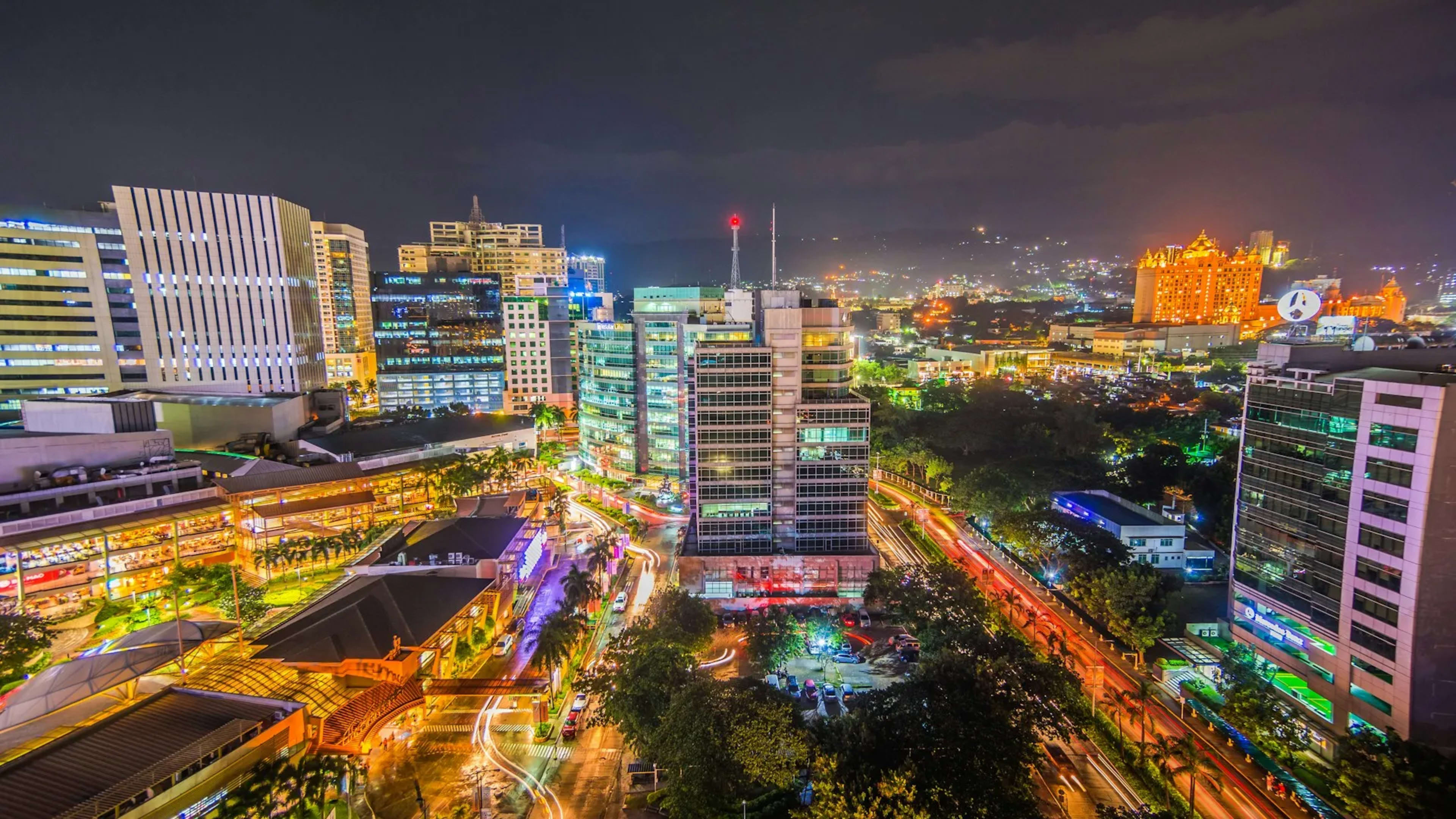Location & Transportation
On July 16, 2024, the Philippine government launched the new “cruise visa waiver,” making entry into the country easier for visa-required foreigners. You can apply for the waiver through the Bureau of Immigration’s e-services portal at https://e-services.immigration.gov.ph.
When you dock in Cebu, you’ll be right near the center of town. The port itself is well-connected, and once you step off, you’ll quickly notice the pulse of the city. In Cebu, taxis and colorful jeepneys are a common sight. I always remind visitors to insist on a metered fare – it saves you from unexpected charges. If you plan to venture a bit further, tricycles are also available for short trips around town.
Nearby Lodging
Cebu City offers a wide range of accommodations. Whether you’re looking for a cozy guesthouse in the heart of the city or an upscale hotel near IT Park, there are plenty of options to suit your budget. Many hotels are just a short ride away from the cruise terminal, giving you easy access to explore the city.
Nearest Airport
The main gateway for international and domestic flights is Mactan-Cebu International Airport. It’s located approximately 15 km southeast of downtown Cebu and is accessible via taxi or shuttle service.
Sightseeing
Cebu is a treasure trove of experiences blending modernity with tradition. As you explore, don’t miss these highlights:
- Visit Cebu Tops for a breathtaking 180-degree view of the city.
- Take a stroll through downtown to see where bustling shopping malls meet historic streets.
- Discover the Taoist Temple, a colorful and serene spot that offers insight into the local spiritual life.
- Check out historical landmarks like Magellan’s Cross and the Basilica Minore del Santo Niño, which speak to Cebu’s rich colonial past.
- Wander through vibrant local markets and plazas that capture everyday Cebuano life.
Tours & Excursions
Getting around Cebu is an adventure in itself. Here are some ideas to help you make the most of your stop:
- Use local taxis and jeepneys, but always ask for a metered fare – it's a small tip that can save you money.
- For a more local experience, try a ride on a jeepney. They’re affordable, colorful, and offer a great slice of daily life.
- If you’re looking to add some thrill, many resorts around Cebu offer watersports like diving, snorkeling, kiteboarding, and windsurfing.
- Consider excursions that take you out of the city to explore nearby fishing villages, visit quaint churches, and experience the natural beauty at places like Kavasan Falls.
It‘s a good idea to compare shore excursion costs between what your cruise line offers and options like Viator and GetYourGuide. They often provide lower prices and include customer reviews and ratings to help you choose the best option. They may also offer more more flexible cancellation or rescheduling policies than those available through your cruise line. However, while booking independently might give you more variety and potentially better rates, be mindful of your schedule - cruise line excursions are typically coordinated to match your ship‘s schedule with guaranteed pick-up and drop-off times.
There is also a great resource for finding local guides at Tours by Locals. Tours by Locals connects you with local guides who can help you plan a private personal tour, guide you, and get you back to your ship on time. You can also check out Rome2Rio for local transportation options. It is a great resource for finding how to get from one place to another, including public transportation, taxis, ferries, and more.
Shopping
Cebu City is a shopper’s paradise! You’ll find shopping malls that cater to every taste:
- SM City Cebu is a four-level mall with a huge department store, a supermarket, a movie theater, and more than 200 shops and restaurants.
- Ayala Mall offers a more upscale shopping experience with designer boutiques, gourmet dining options, and plenty of places for people-watching.
The mix of local craft stores and international brands means there’s something for everyone—perfect for picking up souvenirs and unique gifts.
Dining
When it comes to food, Cebu never disappoints. The culinary scene is a delightful mix of traditional Filipino flavors and international cuisine. Here are some must-try experiences:
- Enjoy a plate of lechon (roasted pig), a local specialty celebrated for its crispy skin and savory meat.
- Savor fresh seafood dishes at local eateries, where the catch-of-the-day is always a treat.
- Sample street food and local delicacies in bustling food markets or dine in a cozy restaurant for a more relaxed meal.
- Many mall food courts offer both local and international fare, making it easy to try a bit of everything.
Culture & Local Events
Cebu is not just about beautiful views and exciting excursions—it’s also a city rich in culture and local events. Here are some insights to help you blend in like a local:
- • Currency & Exchange: The local currency is the Philippine Peso (PHP). Although you may exchange US dollars and other major currencies at various banks and exchange shops, cash is handy for small purchases.
- • Language: Most locals speak Cebuano (also known as Bisaya), and English is widely spoken as a second language, making communication easy for most visitors.
- • Local Hours: Most shops operate from around 10am to 8pm daily. Whether you’re shopping or exploring historical sites, these hours make it simple to plan your day.
- • Festivals & Events: Cebu is known for its lively festivals, traditional music, and dance. Although the cruise port is typically a day stop, if you have extra time, immerse yourself in local celebrations and community events.
- • Safety & Awareness: Like any busy city, it’s wise to keep an eye on your belongings, especially in crowded areas. Be mindful of pickpockets, which are common where there are many tourists.
